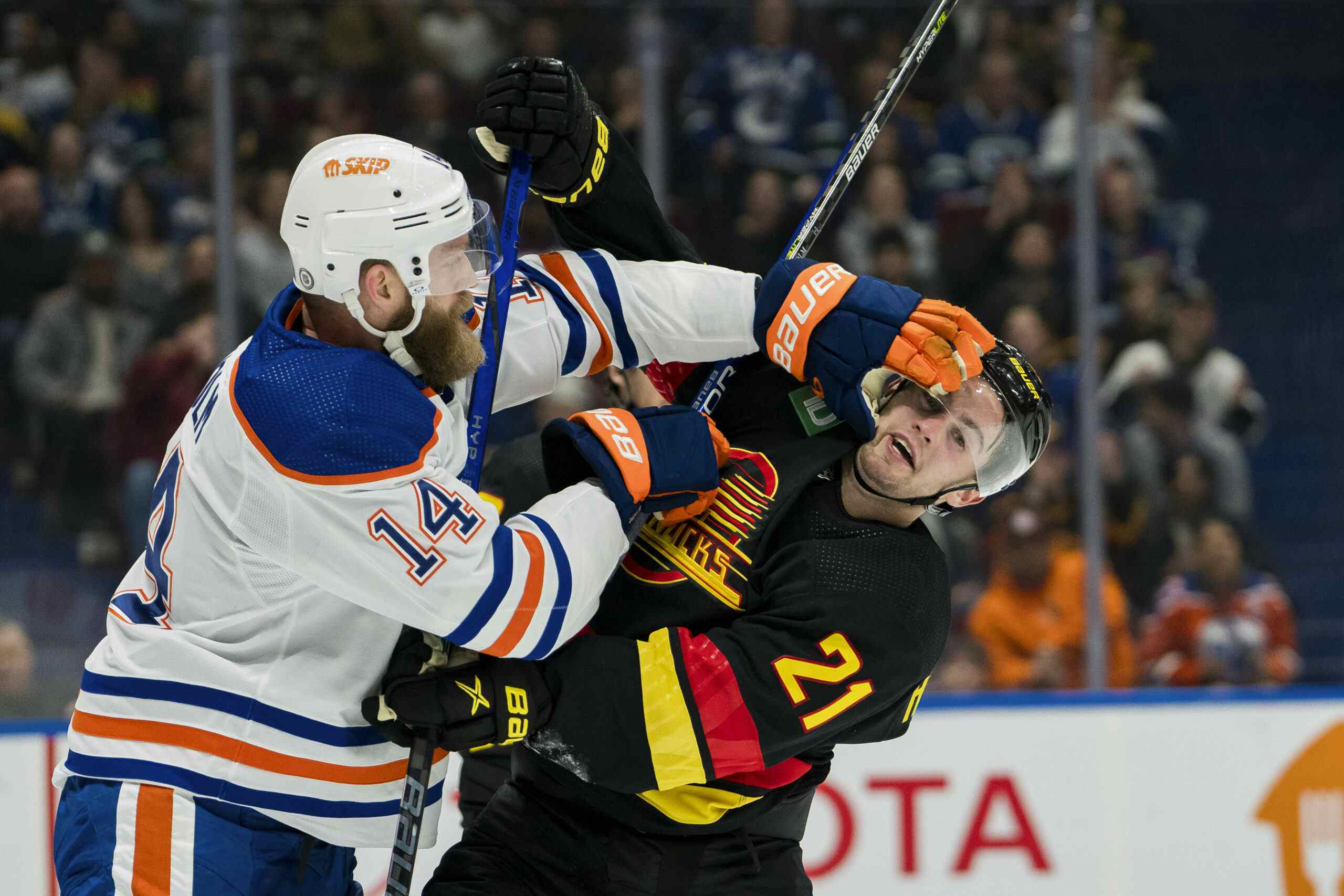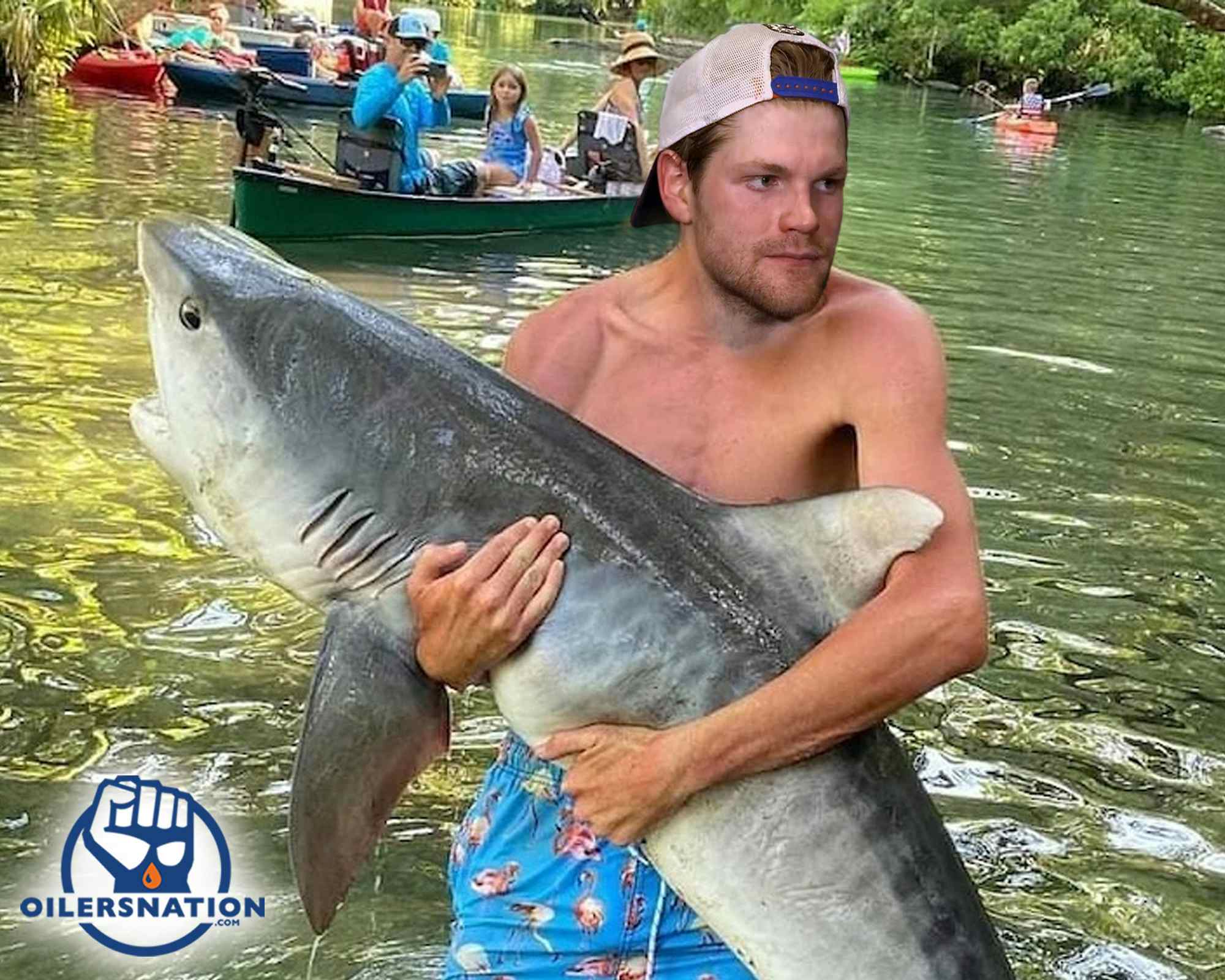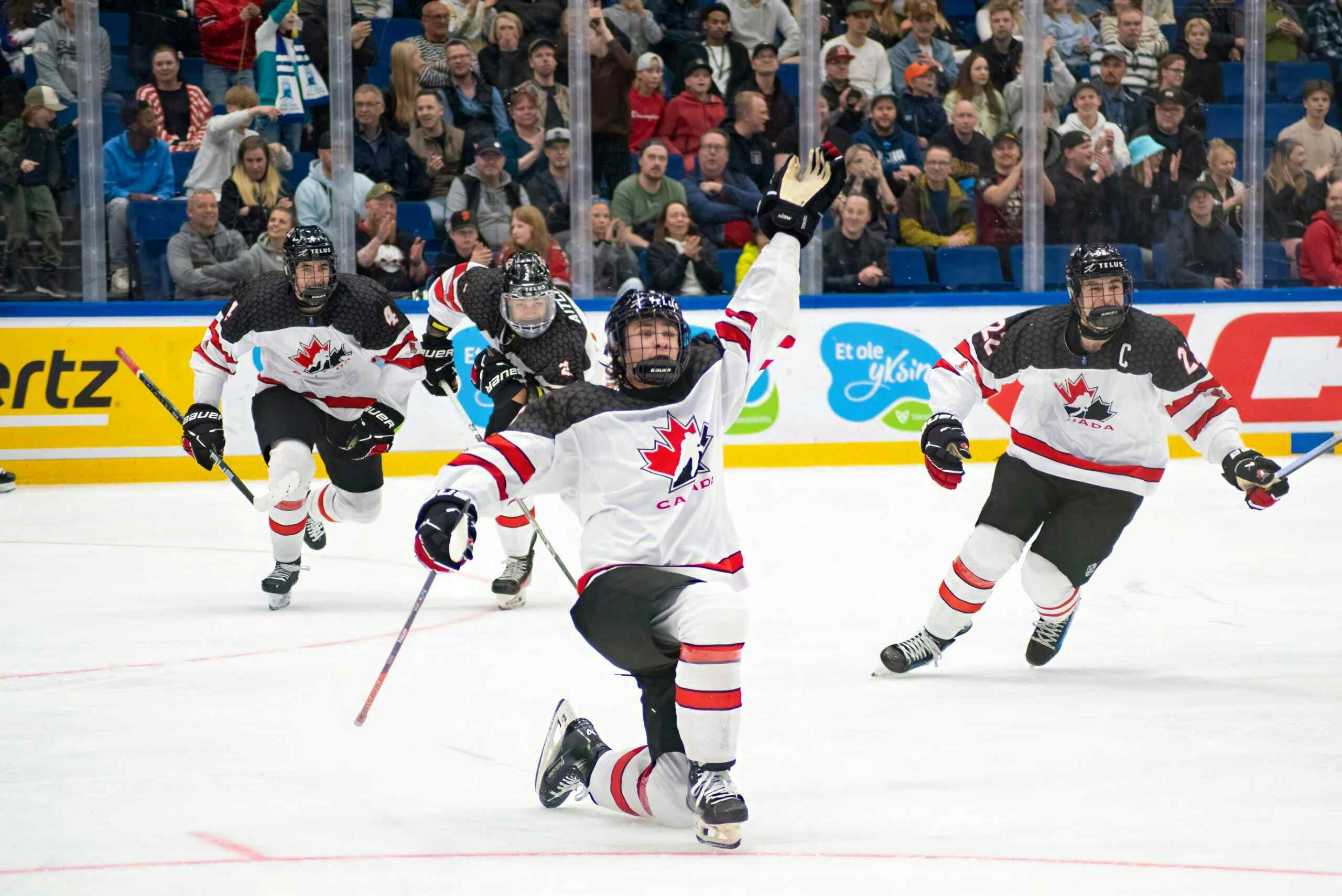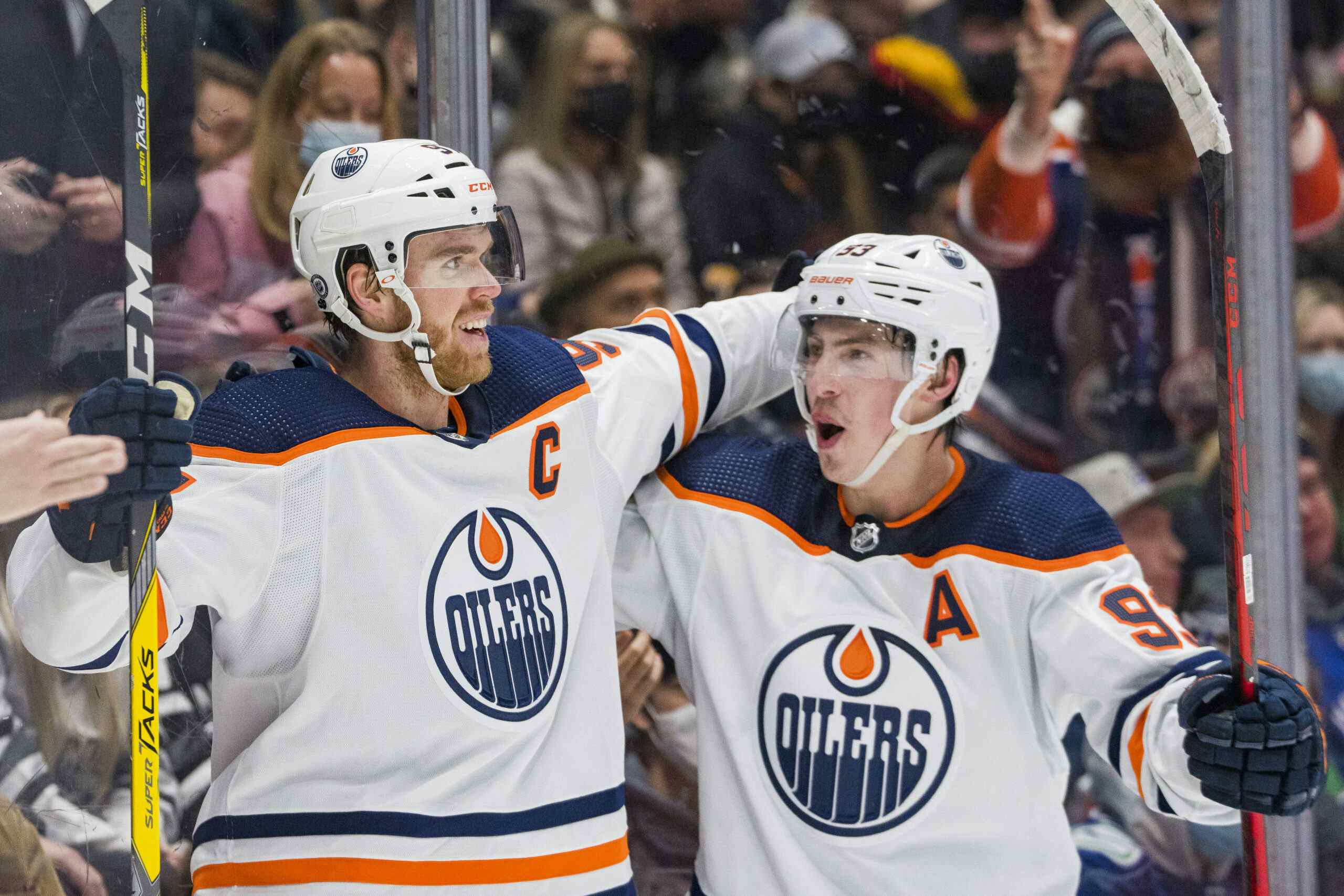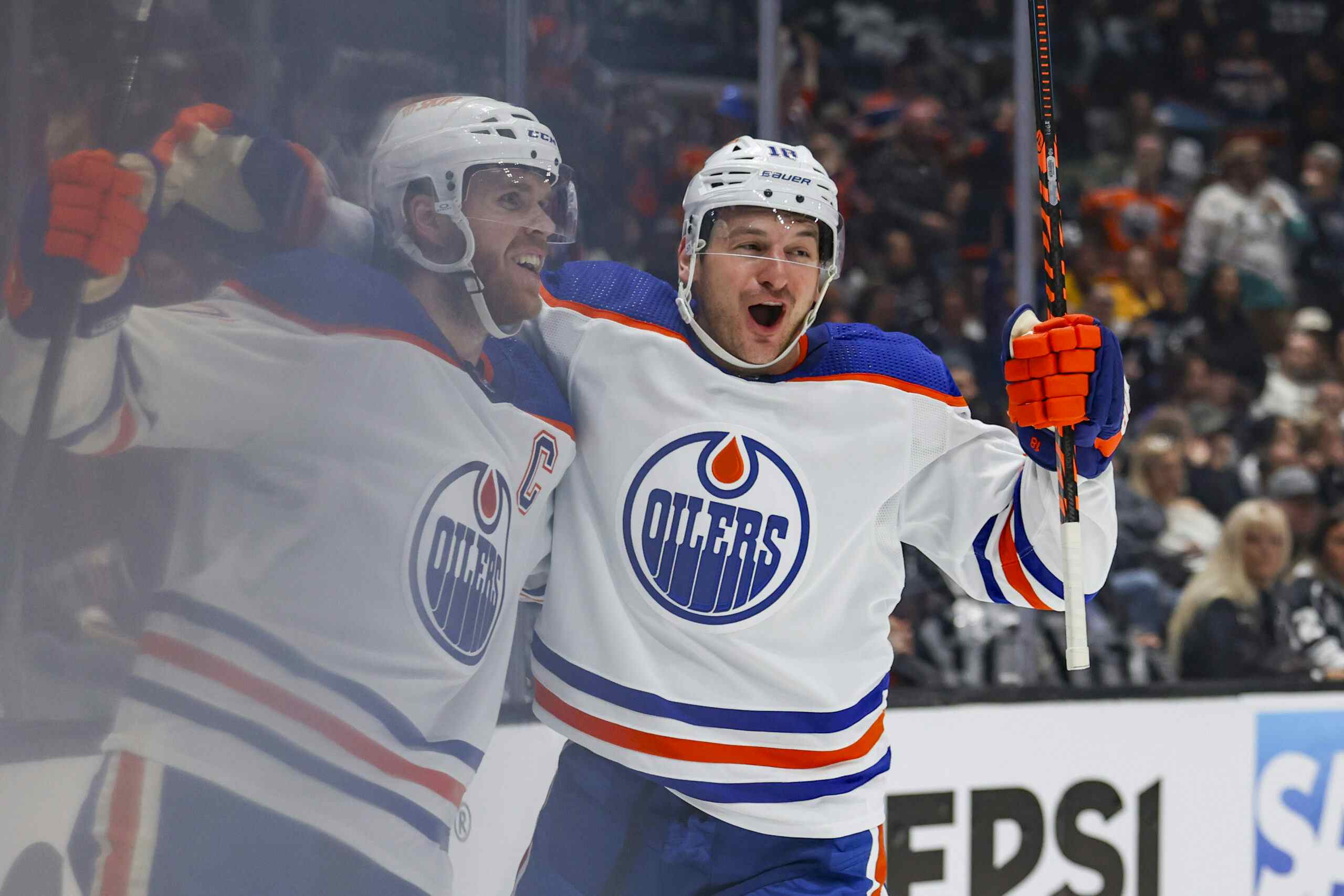Monday Mailbag – Stick to sports?

By baggedmilk
3 years agoAs we do every week, the mailbag is back with the answers you’ve always wanted to know about the NHL and life in general. This feature depends on you guys so I need you to submit your questions. If you have something you’d like to know you can always email me, or DM me on Twitter. With that out of the way, it’s time to learn something. Enjoy.

July 28, 2020; Edmonton, Alberta, CANADA; A general view of Rogers Place is seen before an exhibition game between the Edmonton Oilers and the Calgary Flames prior to the 2020 NHL Stanley Cup Playoffs on July 28, 2020 in Edmonton, Alberta. Mandatory Credit: Andy Devlin/NHLI via USA TODAY Sports
1) Jayson asks – How do you think the NHL and players handled the postponement of the playoff games on Thursday and Friday?
Jason Gregor:
I thought it was fine. The players took the lead and not playing in Wednesday night wasn’t a big deal in my eyes. Their press conference Thursday was powerful, especially Ryan Reaves words about how powerful it was for white players to reach out to him and be the ones asking questions and wanting to do something. It won’t make an instant change, but it made many take notice of the inequalities Black people deal with, and I believe it will lead to people thinking about other minorities who are feeling the same. Empathy is very powerful.
Robin Brownlee:
I thought having Ryan Reaves speak surrounded by other players was very effective. Taking a stand in a symbolic way is a starting point and has an impact, but it’s what happens in terms of turning it into ongoing action that matters far more. Once the initial outrage of recent events subsides, it’s going to take everybody — inside the game and outside it — to make changes that matter.
Cam Lewis:
I thought the moment of reflection on Wednesday night was a cop-out, but them pulling together and listening to the perspectives of Ryan Reaves and Matt Dumba was a positive sign. Professional athletes have a powerful platform and there seems to be an earnest effort to project a meaningful message.
Nation Dan:
I don’t give a free pass for Wednesday night. It was a miss by the league and some far more eloquently spoken people (Kelly Hrudey) put it well. It was the wrong choice but to make a move for Thursday and Friday was a good move with a meaningful speech and talk with Ryan Reaves leading the way.
Did it fix anything? I’m not sure. Did it continue an important cause? Absolutely. But when I look back on it I will definitely remember the NBA, WNBA, MLS, and some MLB teams quickness to react and follow in solidarity.
Zach Laing:
The players should’ve taken action a day earlier, as I wrote about here, but it was a strong statement nonetheless. NHL players, much like other pro athletes, need to exercise their right to free speech and not shy away from making their voices heard.
Baggedmilk:
I liked seeing the players use their platforms and positions to stand together for an important issue. I thought the group shot of all of the Western Conference bubble players standing together as one was pretty powerful as a means of furthering the conversation that needs to be had.

2) Stephanie asks – Hockey is a wonderful sport and I was happy to see the players use their voices for such an important issue. What are your thoughts on the idea that athletes should simply stick to sports?
Jason Gregor:
They are human, like all of us, and if they want to try and help promote change I applaud them. I really appreciate it when people with a platform use it to speak of for those without one.
I don’t see or read the “stick to sports” lines very often anymore. I’ve had many directed at me over the years, but it is very rare now. Progress is good.
Robin Brownlee:
It’s ridiculous and the reality is that most of the people in the “stay in your lane” crowd have a problem with the message, not the fact players are giving their opinion. That says something about them. It’s relatively easy to see where a person is coming from on various media timelines. I got tired of one guy spewing hate on Saturday, but rather than block him I took a long look at his timeline and suggested other people do the same for context. By Sunday morning his account showed one of those messages that his tweets were protected so people couldn’t see them. Coward.
Cam Lewis:
To assume that sports aren’t inherently political is either wildly naive or willfully ignorant. Anthems are staple, leagues frequently have military presence at games, owners use teams to seek government funding for land development projects, and so on and so on and so on. Being a massive medium for communication, sports provides a beacon to project ideals, and to suggest we silence players, who are human participants of society, is suggesting to strip people of their agency and their humanity.
It might make you uncomfortable when you just want to zone out and watch sports, but maybe that’s a good thing. Being challenged by others from a different walk of life is worthwhile. I think many tend to exist in an echo chamber, especially when it comes to discussions around race.
Nation Dan:
Sports stars have become celebrities in their own right, and celebrity gets you attention. If you have peoples attention, your words/actions carry more impact.
I am always proud to support people speaking out and using their platform to continue our change as a society.
Zach Laing:
The intersection of sports and politics have long been intertwined and in 2020, it’s no different. As Nation Network writer MerOutLoud tweeted this week, “someone tell (sticking to sports) to the Olympians who boycotted the games, to Ali for refusing the draft, to Kap for kneeling, and to every single sporting event that plays an anthem.”
Baggedmilk:
It’s actually funny to me when people say that. We often want hockey players to show more personality and give answers beyond the usual playbook of cliches so it’s been interesting to see some folks get upset when they did exactly that. Athletes are human beings with thoughts and feelings and causes they believe in, and it’s important that they speak up on behalf of those beliefs.

Mar 3, 2020; Dallas, Texas, USA; Edmonton Oilers goaltender Mikko Koskinen (19) in action during the game between the Stars and the Oilers at the American Airlines Center. Mandatory Credit: Jerome Miron-USA TODAY Sports
3) Trey asks – If you’re pretending to be Ken Holland for a moment, would you have a preferred route for acquiring a goaltender either via trade or free agency? Who would you personally target to share duties with Mikko Koskinen?
Jason Gregor:
The Oilers don’t have many prospects or draft picks to dangle so singing a UFA makes more sense.
I’d look at Thomas Greiss and Anton Khudobin. Khudobin will cost more, but he has proven he is good when splitting duties.
Robin Brownlee:
It starts with Holland deciding how/if Koskinen fits. If he’s your starter, then the search is on for a back-up. If you see him splitting time like he did with Mike Smith, he needs a tandem guy. If he sees Koskinen as a back-up, he needs to go out and find a starter. Of course, money factors into all the moves, be they free agents or in a trade. There are pros and cons to both routes. I don’t think Koskinen is terrible by any stretch, but he can’t be counted on for more than 45-50 games so I’d be looking at a tandem guy or back-up with the potential to take over if need be.
Cam Lewis:
I think Robin Lehner is going to be too pricey, so I would fall back on Anton Khudobin, who had had a really nice showing in Dallas. Thomas Greiss would then be my third choice after those two.
Nation Dan:
I’m all aboard the trade train now. In this week’s episode of Oilersnation Radio, we spoke to the fact that FA goalies haven’t really panned out for us (or around the league) and so hopefully we can look at a situation in Pittsburgh, or Arizona and pluck one of their guys away.
Zach Laing:
I’d like to see him target Griess or Khudobin in the FA market, or someone like Jake Allen or Tristan Jarry in the trade market. Holland should have some nice options beyond Mike Smith.
Baggedmilk:
Personally, I’d like to see him trade for a younger goalie that could be available such as a Tristan Jarry out of Pittsburgh but the problem is the acquisition cost. It’s not like the Oilers are flush with picks and prospects that they can simply flip out in order to get this done. So with that said, I’d bet that Holland picks up a UFA stopgap like Thomas Greiss instead.

Mar 13, 2020; Edmonton, Alberta, CAN; The statue of Wayne Gretzky watches over an empty Rogers Place as the NHL suspends games because of the COVID-19 outbreak at Rogers Place. Mandatory Credit: Perry Nelson-USA TODAY Sports
4) Geoff asks – Do you think it’s more likely that the NHL will try to compress the 2020-21 season as much as possible to get back on a “normal” schedule? Or will they try and make that change over a few seasons? What are the pros/cons?
Jason Gregor:
It won’t start until December at the earliest, so the season will end later than early April. If they start in December they probably could start in October of 2021, but if they don’t start until January then I suspect next season will start later as well.
Having playoffs in July and August is not ideal, but in the big picture, it isn’t that much of an inconvenience of players, fans, or media.
Robin Brownlee:
I don’t think we’ll see a normal schedule in the coming season. It’ll likely be played in hubs again even if it’s modified somewhat from what we’re seeing now. What’s happening with COVID-19 will dictate. It’s a tough ask to expect teams to play in bubbles for an entire season. It’s a really good question and I don’t know how the NHL will tackle this and what’s reasonable to expect.
Cam Lewis:
At some point, the NHL also has to get its calendar back on track. If they try to do a normal, 82-game season with four rounds of playoffs beginning in December (I think this is ambitious) then the draft, free agency, and the start of the 2021-22 season are also going to be pushed back again. We might have to accept a shorter 2020-21 season to get things back to normal.
Nation Dan:
I don’t have any real insight into what the league is thinking, but if I had to guess.
I still think we are a couple of years away from a “proper schedule”. I have to think the league is going to be attempting to make an 82- game season happen and get the league back to it’s old schedule in a year or two.
Zach Laing:
I could see the league going with a shorter season to try and get themselves back on track to regularly scheduled programming. It could get complicated otherwise. I think it would be good for the players and the league given the delay that’s occurred because of the pandemic.
Baggedmilk:
Gary Bettman has said the league wants to play its full schedule but I don’t know how they’re going to get that done so I honestly wouldn’t be surprised to see 20 (???) games shaved off to try and ease the pressure of a compressed schedule.

5) Peter asks – There are rumours swirling that the NHL is considering four hub cities for the 2020-21 season. It makes sense since the playoffs have gone well, so far. My question is related to revenue for next season: Does a hub-city scenario make economic sense for the NHL if there is little/no revenue from tickets, food, memorabilia, etc? Costs would be down (travel, lodging, etc…) but can the NHL make enough from a hub-city proposal to pay the owners and players over the course of a season?
Jason Gregor:
I was told it is unlikely that happens. Players wouldn’t want it. It is on the table in worst-case scenario. If MLB and NFL can play and travel then the NHL will want to follow that route.
No fans would be a massive reduction in revenue, and based on current CBA set up the owners will be the ones having to pay more as Escrow for the players is capped.
The league is hoping they can have some percentage of fans in each city.
Robin Brownlee:
As in the previous question, I don’t know. Until the NHL goes over the books and sees how much revenue has been lost, it’s difficult to say. The loss of in-game revenue is going to be substantial and won’t be mitigated by saving on travel. Even the flat cap we’re hearing about is inflated compared to money coming in, but teams would be forced to jettison players like crazy if the cap was cut by the amounts needed to make up for the shortfall. The economics don’t make sense right now.
Cam Lewis:
I honestly don’t know the economics of it, but it would surely be preferable to just not playing. The NHL is a gate-driven league, bringing in a lot of revenue from merch, food, and tickets, as you mentioned, but if that isn’t possible, just living off the TV-deal revenue will have to suffice. I just don’t think players will want to be in bubbles away from their families again. MLB has shown that you can execute a season with travel so long as there’s major buy-in from players when it comes to being strict with being in the hotel when on the road.
Nation Dan:
These questions are tough ones for me. I don’t know any more than anyone when it comes to the impact of this bubble.
What I do know is the players are doing the best they can in this environment but I think they’re struggling somewhat quietly and I think fans appreciate that, I know I do.
Zach Laing:
I have no idea the impact the bubbles would have, but I’d take Jason Gregor’s word on this one. The safest play would still be to bubble the league up.
Baggedmilk:
Good question. I have no idea how the business side of this works but it would be very interesting to know what kind of rev splits the teams would get if the league is playing out of four hubs for the 2020-21 season. I wish I knew the answer tbh.
OODLE NOODLE IS OPEN FOR TAKE-OUT AND DELIVERY

During this time of pandemic, Oodle Noodle will be donating 10% of all takeout and curbside delivery sales will be donated to local charities on a weekly basis. To order pick up, call into the store directly or order at the till. If you’re staying in and practicing your social distancing, no-contact delivery is available at www.oodlenoodle.ca.
Recent articles from baggedmilk

